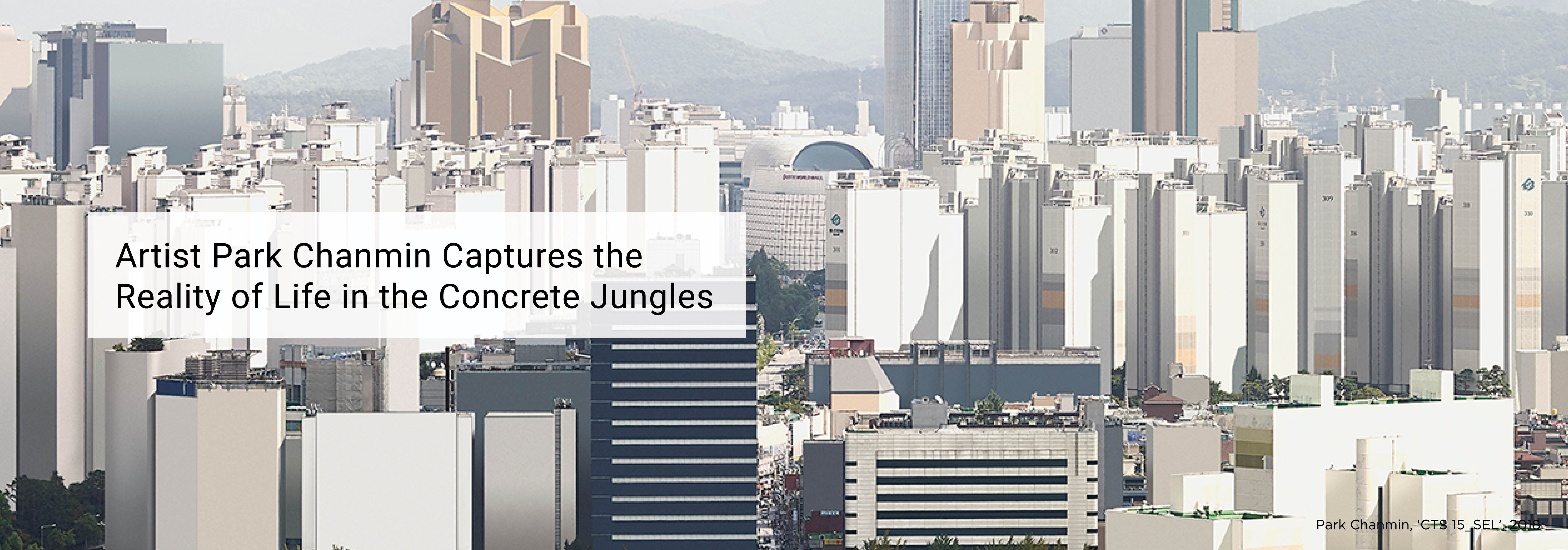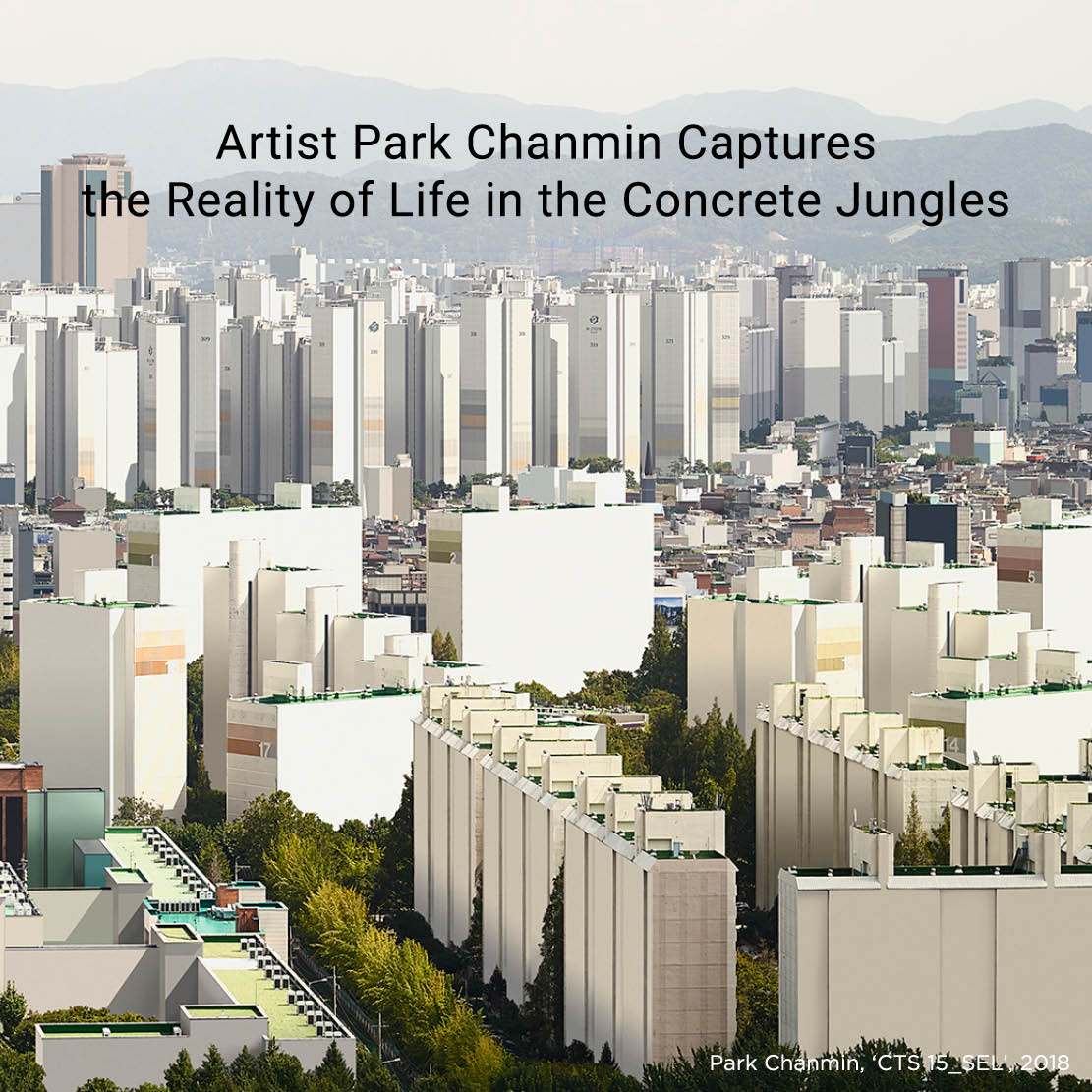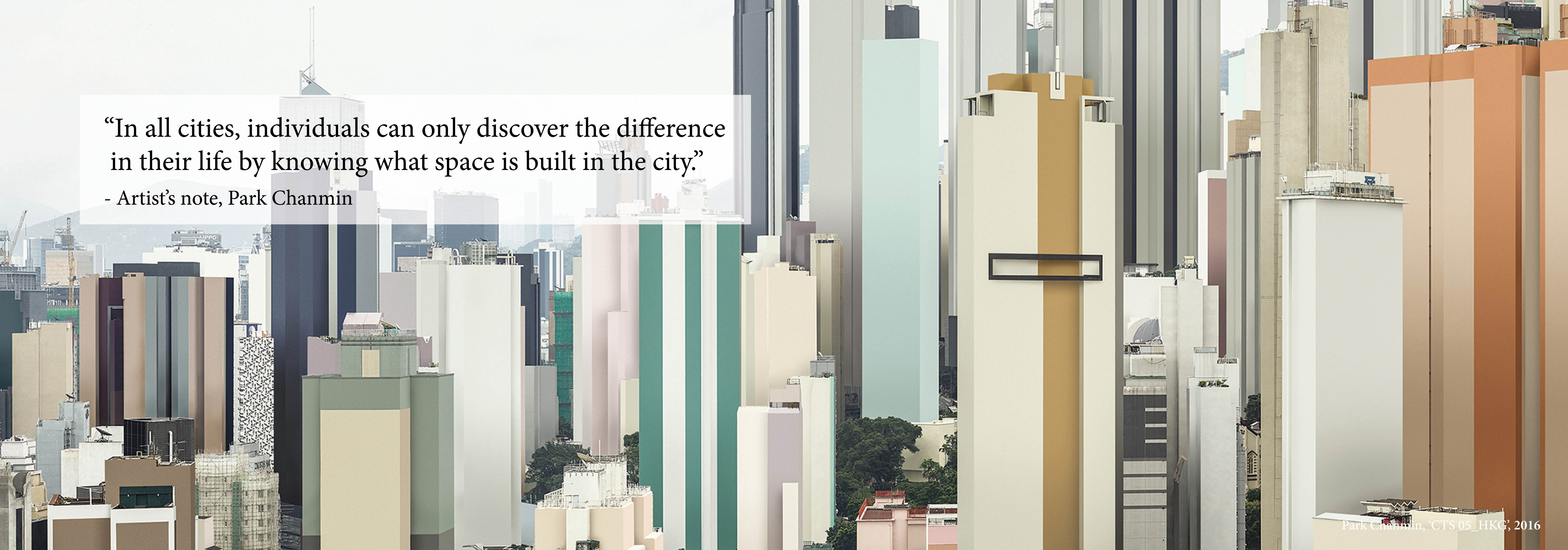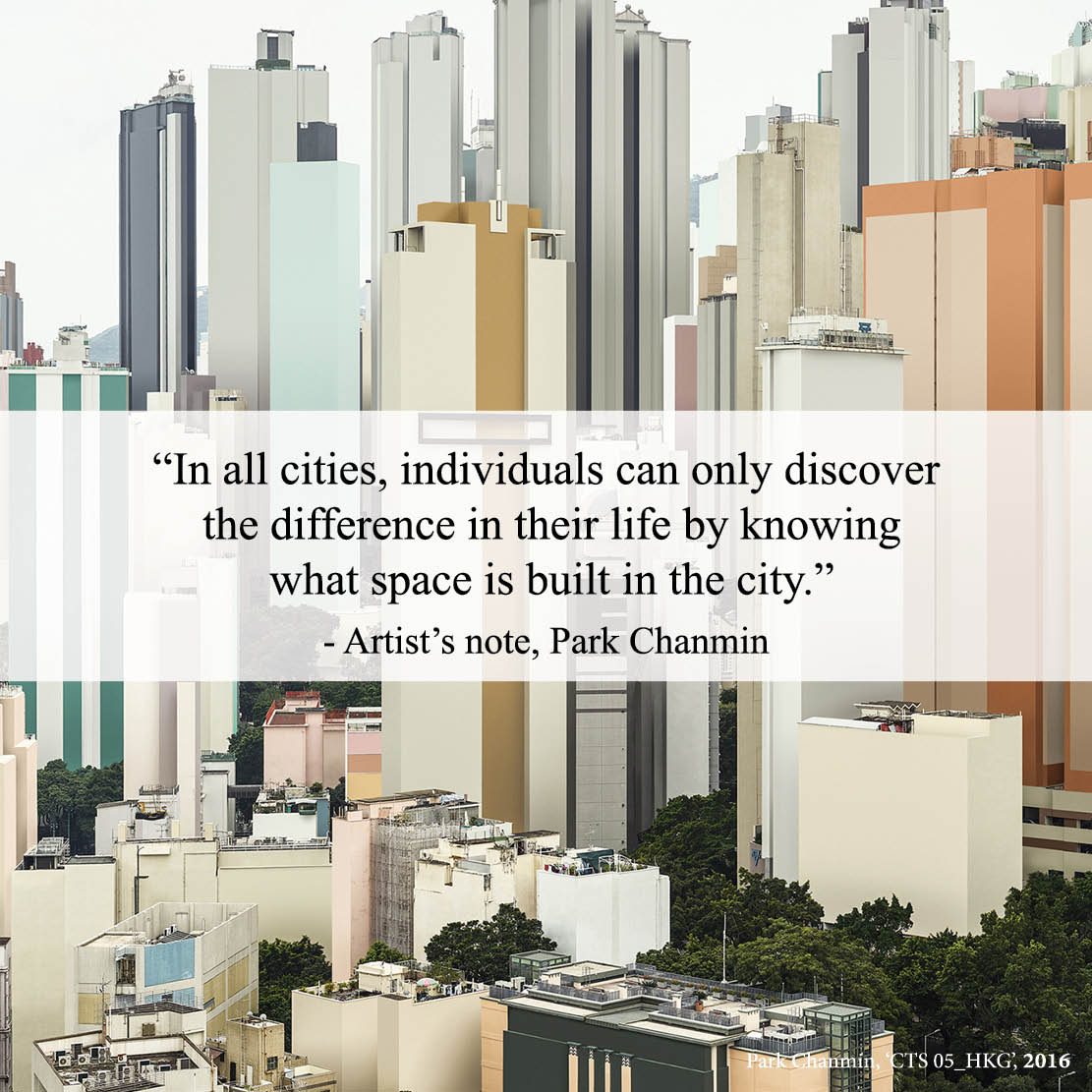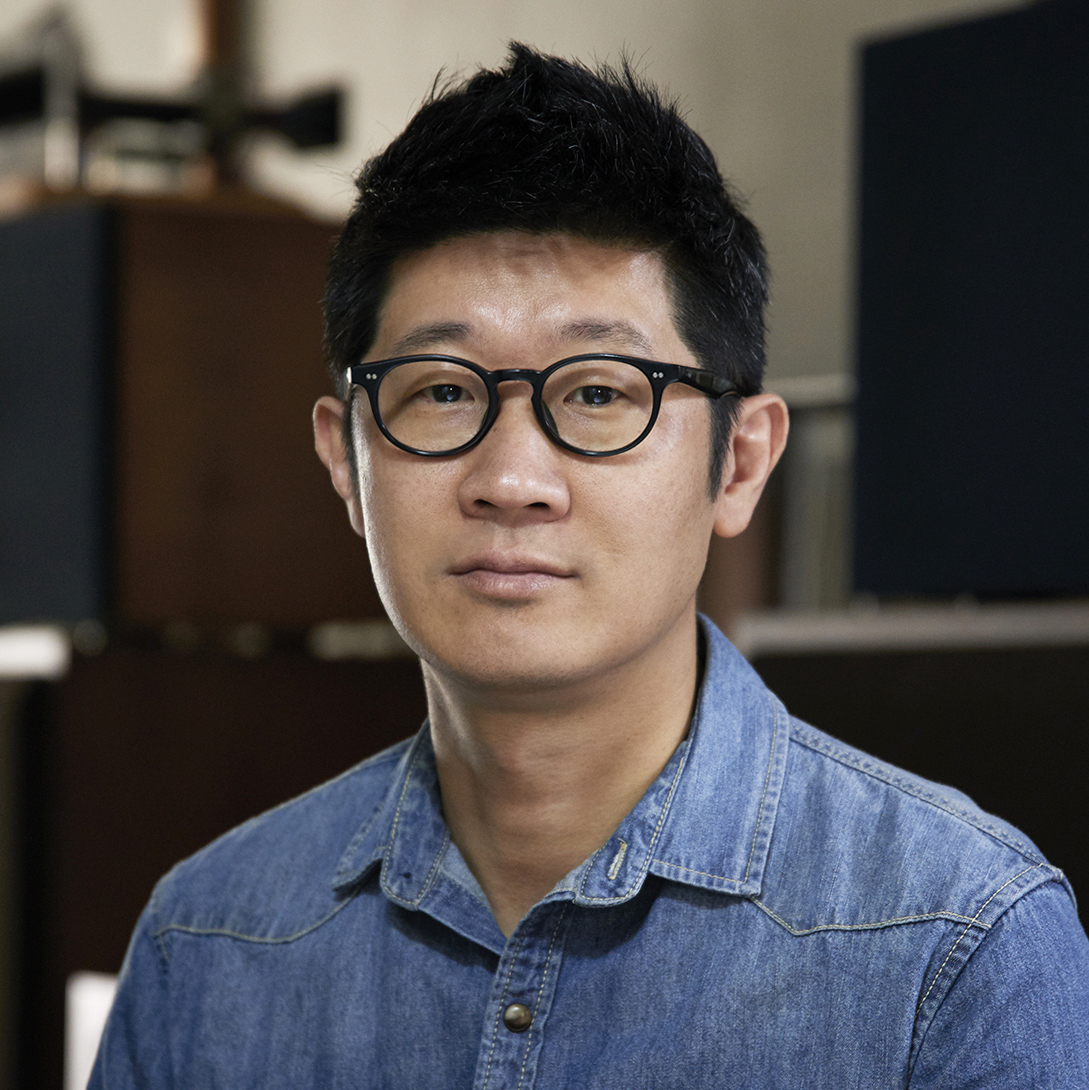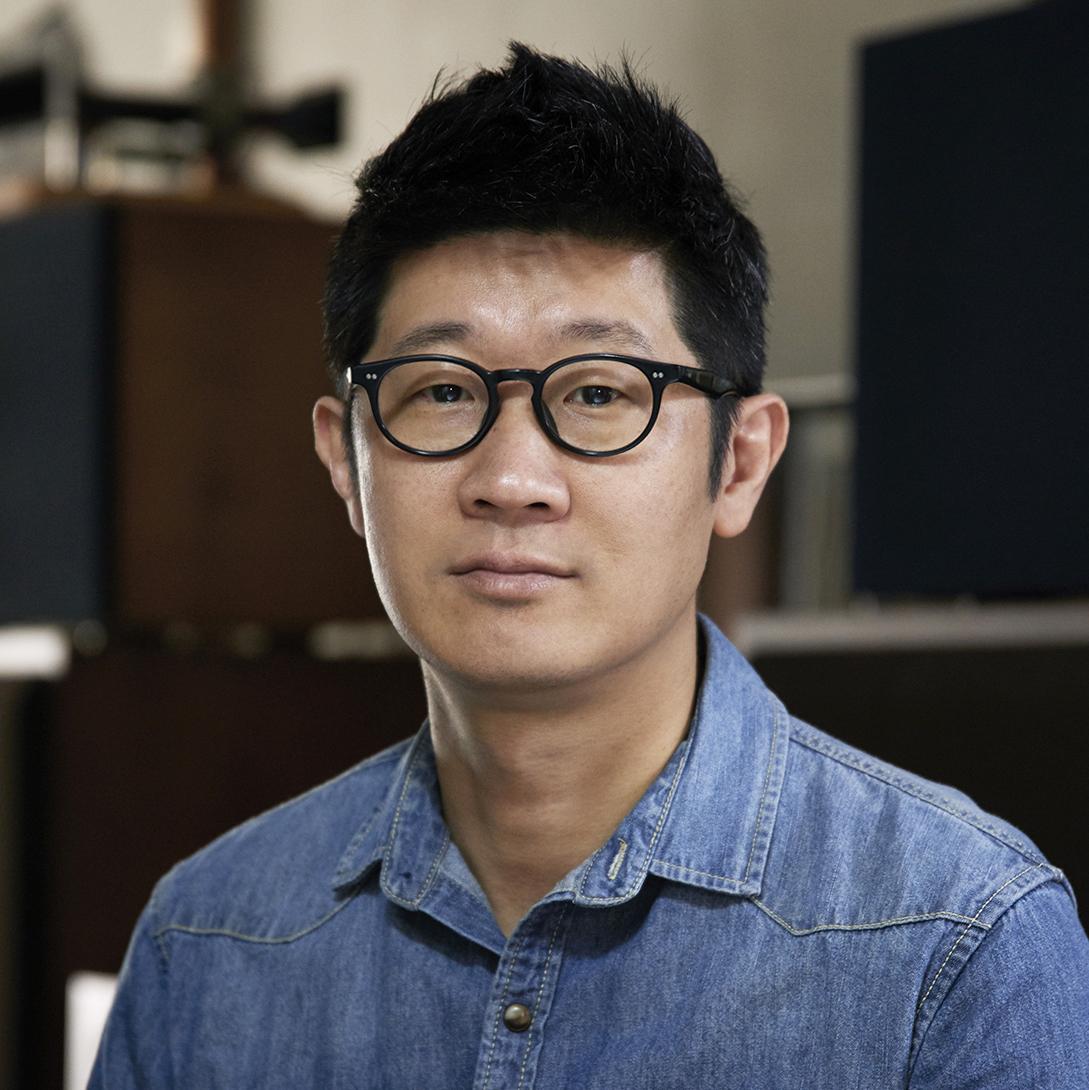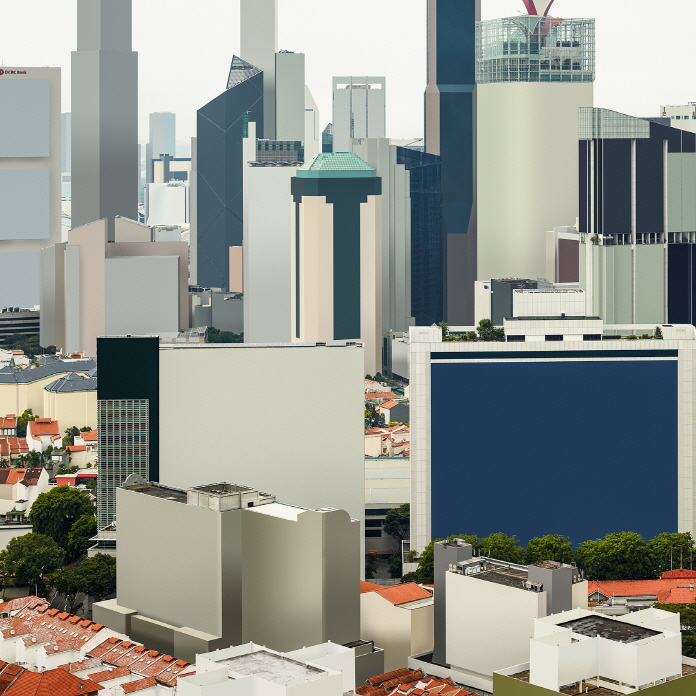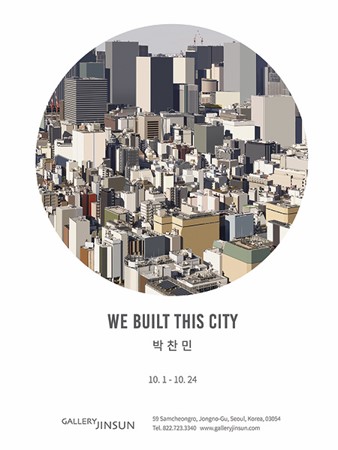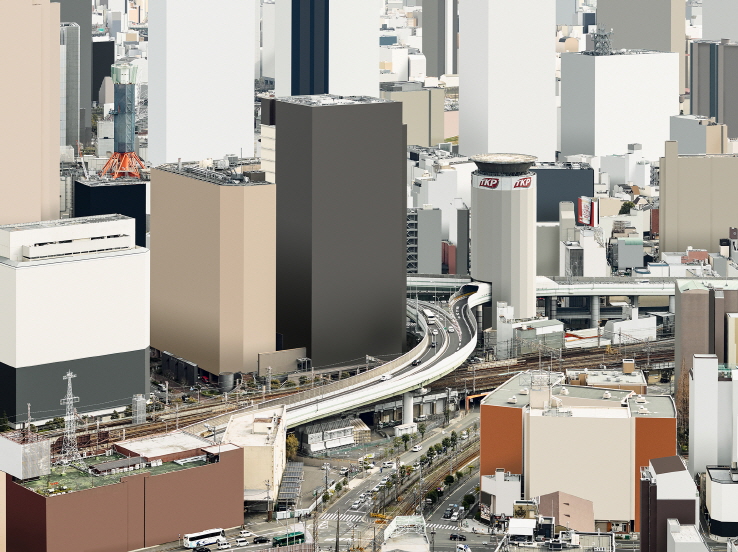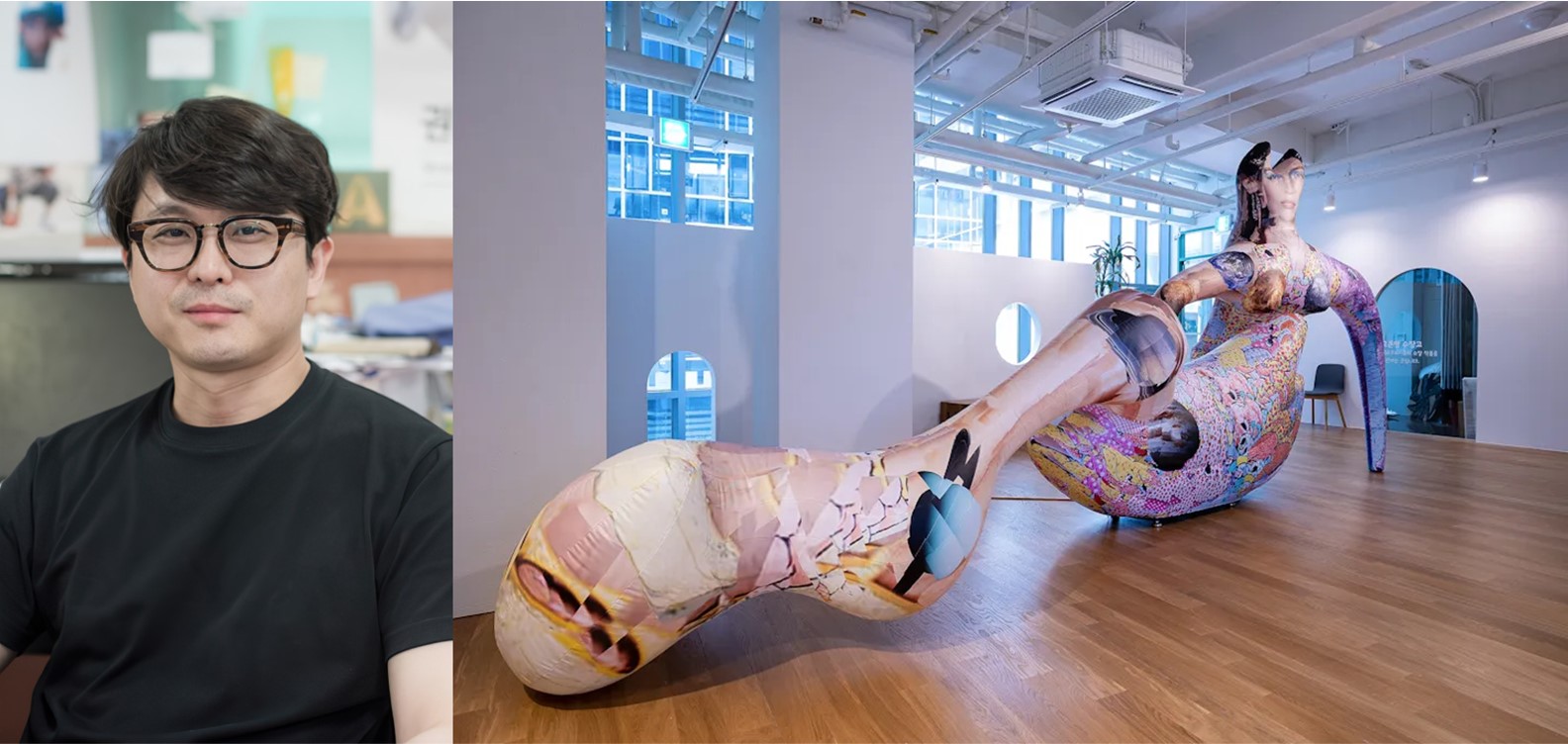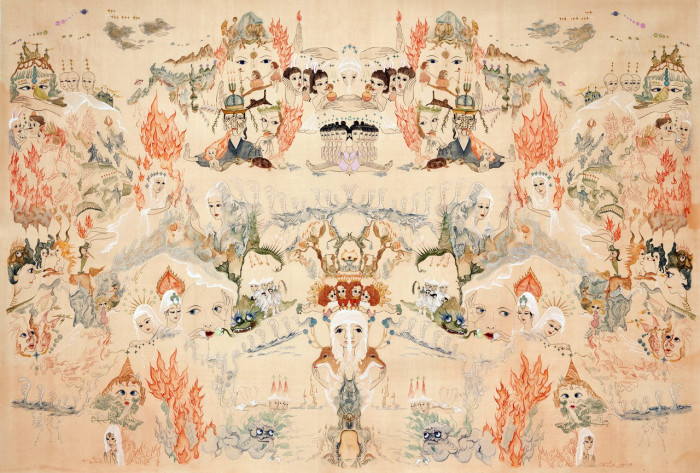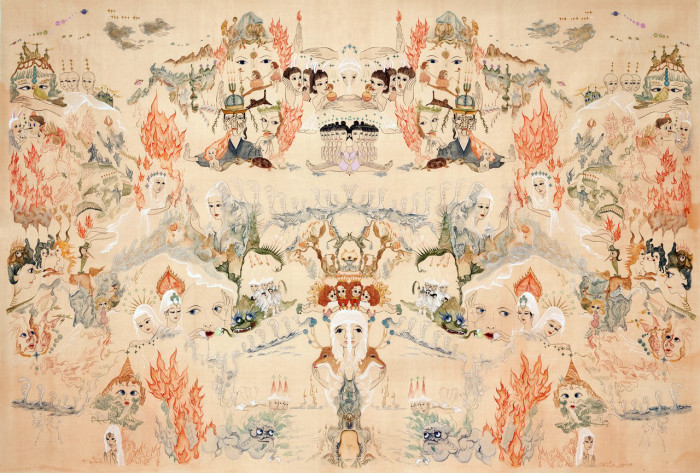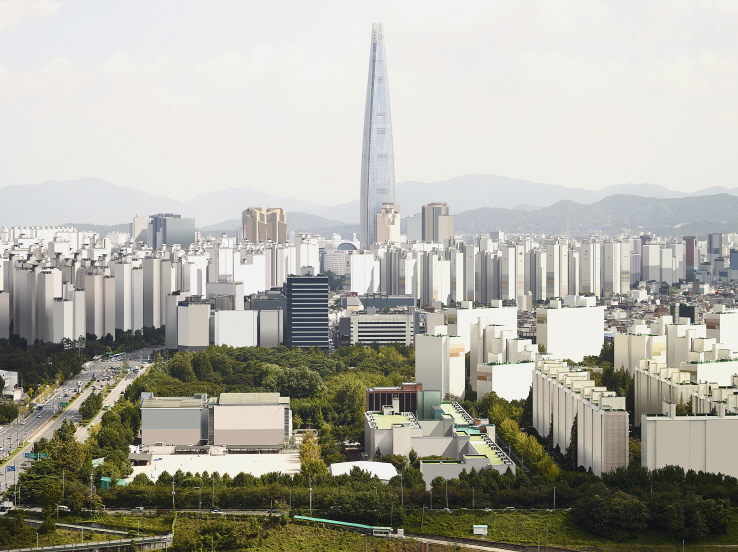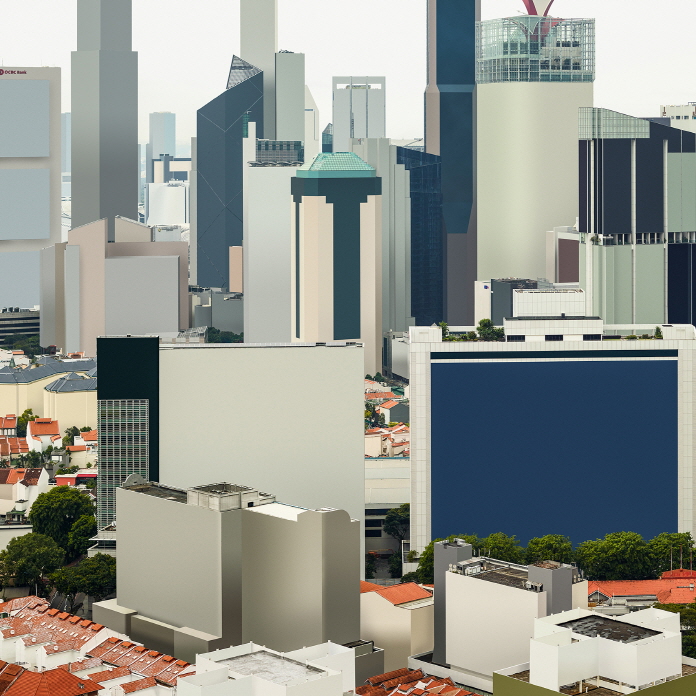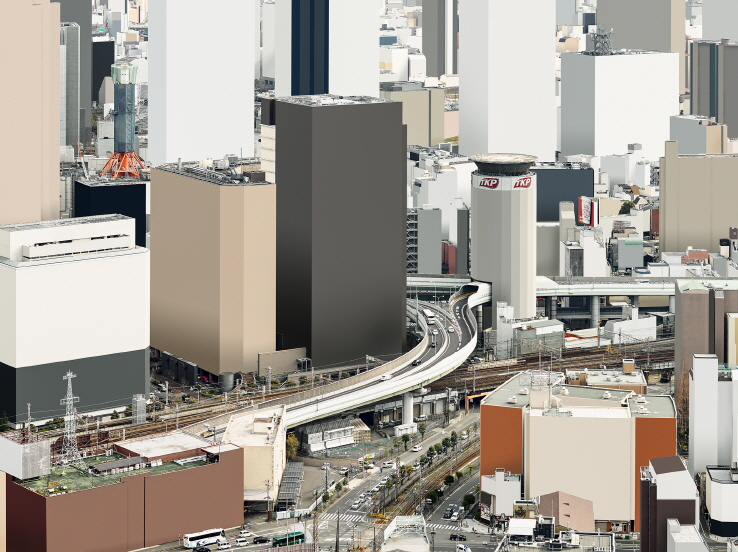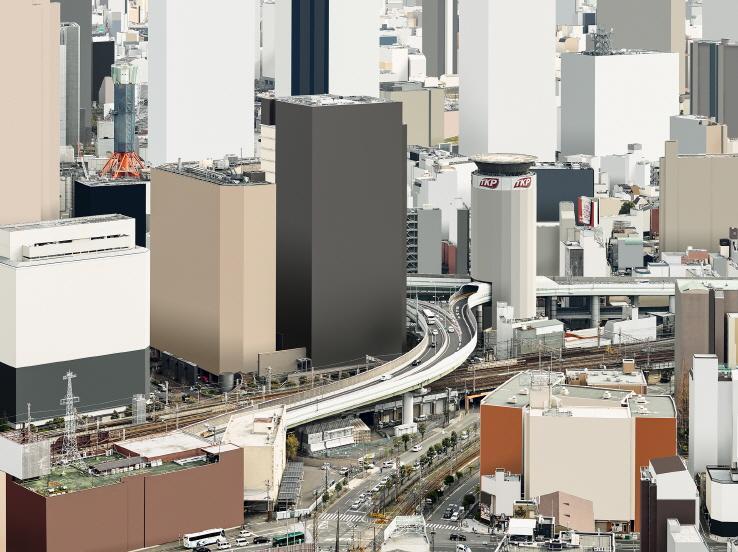
Park Chanmin, 'CTS 06_OSA,' 2015, Digital Pigment Print, 39.3 x 51.1 in (100 x 130 cm)
Through photography, artist Park Chanmin (b.1970) provides insight into the lives of city dwellers by reflecting his interest in the ever-growing cities. His works give somewhat surrealistic and isolated sentiments, capturing the ubiquitous nature of cities and betraying the flatness of urban areas.
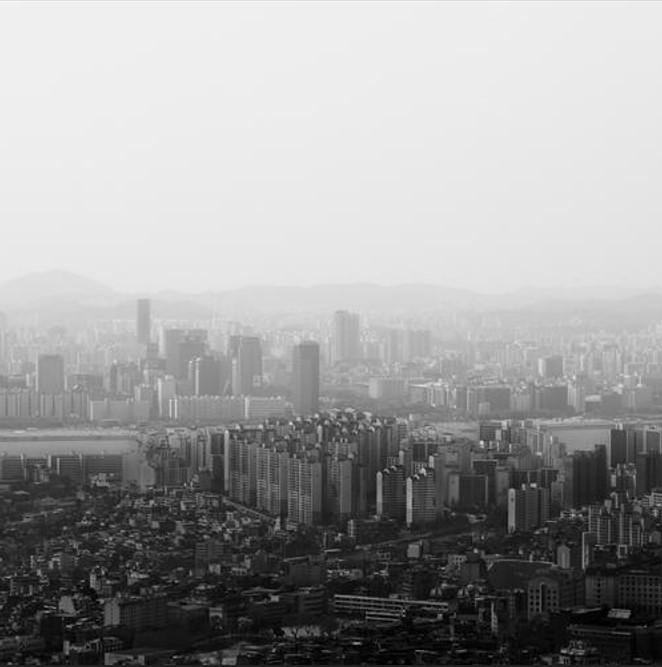
Park Chanmin, 'Intimate City,' 2008. Courtesy of the aritst.
‘Intimate City’ (2007–2009) is the artist’s first series on urban residential areas. The apartment complexes overlooked from a distance and captured in black and white are surrounded by blurry haze. The brand names of the apartments, usually written on the exterior, set the value of a residential area and even the symbolic hierarchy in our society. They are also one of the few marks that differentiate an apartment from others. But Park erased the names in his artworks, making them all the same. By capturing monotonous city landscapes, Park aims to reflect the monolithic life of urbanites.
Park began the Blocks series in 2010, taking residential areas of Korean apartment complexes and residences in Scotland as subjects. The residential areas, which are taken at a closer range compared with the former series, reinterpret the buildings and their area as solid geometric spaces by erasing the details on the building’s exterior, such as windows, doors, signboards, and advertisements. Because of their simplified shapes, the buildings remind us of warehouses, containers, or, as the title suggests, toy blocks. The solid buildings without any passages that connect the inside and the outside mirror the isolated life of modern people.
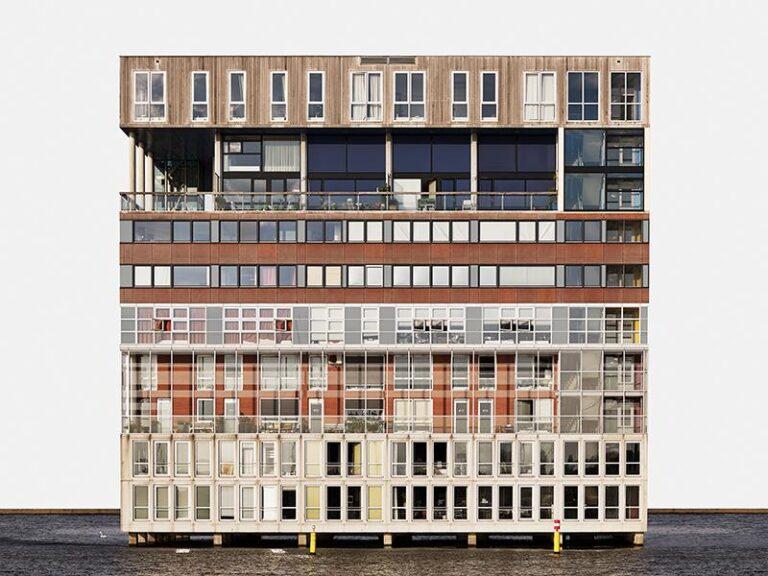
Park Chanmin, 'Untitled_01,' 2012 ,digital pigment print,100x135cm.
‘The Untitled: The Level of Deception’ (2012–2014) series focuses on a single building or structure.
Placed in a gray-scaled space, the buildings in this series only reveal one or two parts of their facade as if it was accurately drawn through the design program. The captured buildings contain colors unlike their backgrounds but give a surrealistic, cold sentiment because of their composition.
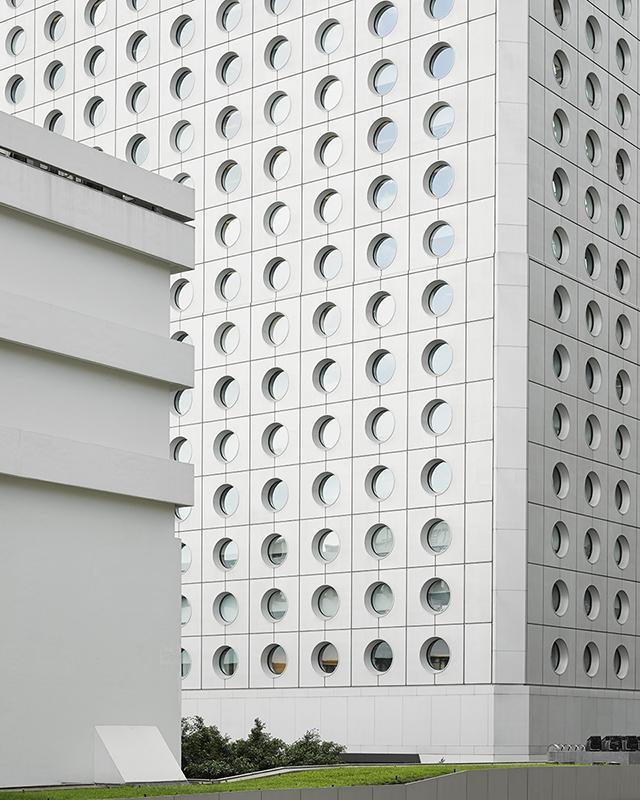
Park Chanmin, 'Urbanscape_002,' 2014, digital pigment print,100x122cm.
As Park’s interest expanded to various urban areas, the series ‘Urbanscape; Surrounded by Space’, captures places from different cities, including Seoul, Busan, Daegu, Hong Kong, and Macao. Yet the captured buildings do not reflect any locality or individuality, emphasizing only the general characteristics of urban space. The lines and planes in urban surroundings are emphasized by overlapping lines and lines, planes and planes, and mixing lines and planes. In the graphic-like photography works, the buildings are simplified and flattened, metaphorizing the humdrum life of city dwellers.
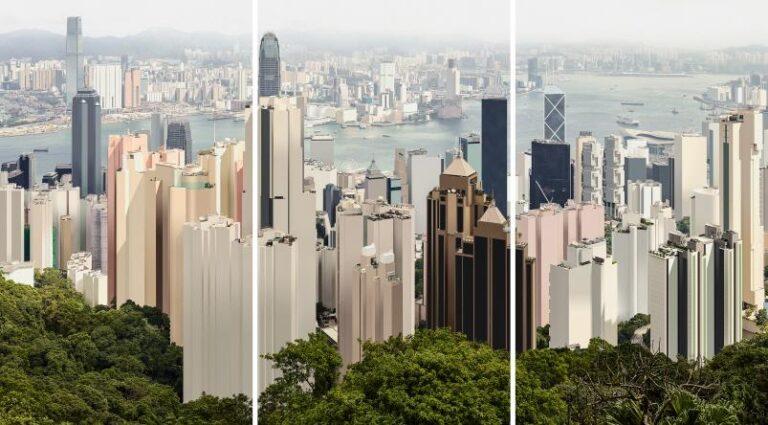
Park Chanmin, 'CTS 04_HKG,' 2016, Digital pigment print, 47.2 x 83.8 in (120 x 213 cm) x 3pcs.
The ‘Cities’ series captures the landscape of the urban jungle. Like his earliest series, this surveys the cityscape from an aerial view to seize the unique structural form of the metropolitan scenery. As in the ‘Blocks’ series, the exterior details are erased, and the surface is processed into a clean, solid color. The concrete jungle is merely left with a heavy mass texture that looks like scale models in museums so that you can overlook the city’s structure. The series captures the landscape of different cities but only reveals similar features that can be found anywhere.
Artist Park Chanmin has been working on taking pictures of the urban landscape and living environments through photography for years. Rather than simply capturing the cityscape, the artist attempts to seize the core reality of modern urban life and its structure.
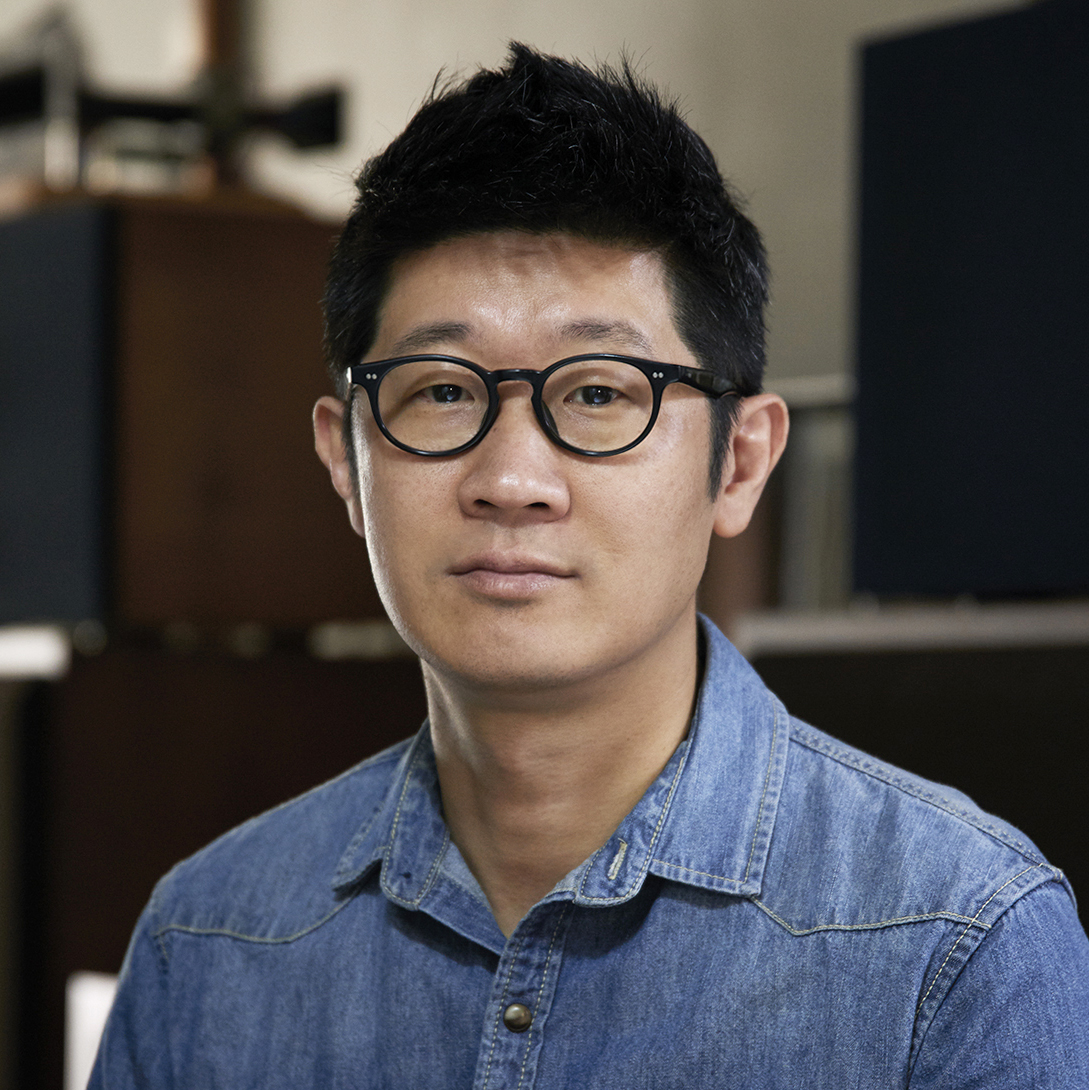
Artist Park Chanmin. Courtesy of the artist.
After holding his first solo exhibition at Gallery Lux, Seoul, in 2008, Park Chanmin had nine solo shows until 2022. He was one of the first artists who won the KT&G SKOPF Award (Korea) and the 6th Ilwoo Photography Awards. His works are in the collections of various museums and foundations, such as the National Museum of Modern and Contemporary Art (Gwacheon, Korea), ILWOO Foundation, Daegu Museum of Art (Daegu, Korea), Goeun Museum of Photography (Busan, Korea), Seoul Museum of Art (Seoul, Korea), and Sovereign Art Foundation (Hong Kong).



